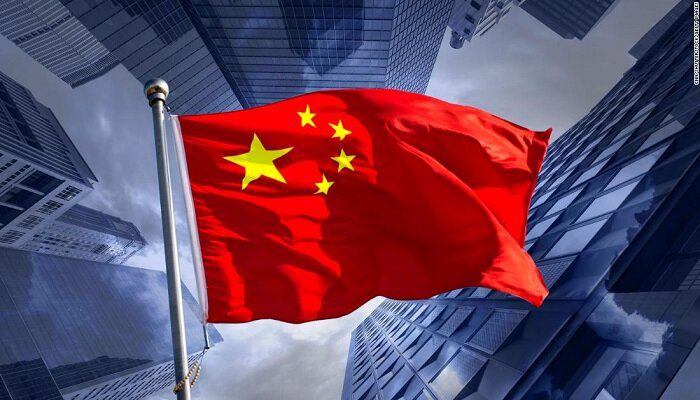Private equity firms that went on to accumulate more than US$1.5 trillion in assets in China within a span of 2 decades, have now started to face difficulties when chucking out their previously promising investments that were anticipated to yield substantial returns.
Because of the current downturn across the public markets as well as the unappealing valuations they are offering, buyout firms are now considering private sales as another option. The mounting concerns regarding the risks associated with investing in mainland China have led secondary buyers to request discounts ranging from 30% to as much as 60%. Haircuts in Europe and the US are typically around 15 percent.
As per the interviews with almost 12 private equity investors as well as advisers, many firms are considering a separate strategy of postponing sales by putting forth continuation funds, which would assume control of holdings for extended time periods, spanning several more years. That looks like challenging.
The absence of convenient exit options has an effect on firms such as Blackstone-backed PAG as well as Carlyle Group, shifting the world’s second-largest economy from a promising market for buyouts into a challenging environment in terms of long-term investments.
The Chinese assets demands has significantly declined in recent years, thereby resulting in record outflows from public markets. This dip can be attributed to the challenges faced by the Chinese economy so as to regain momentum as well as the growing apprehensions regarding the political trajectory under Xi Jinping.
Niklas Amundsson, Partner at Monument Group, stated that they are at present facing more challenging times that bear a striking resemblance to the worldwide financial crisis. China is at present experiencing a decline in popularity in terms of global investors, leading them to temporarily suspend their funding activities in the country.
A Hong Kong-based investment firm, PAG, with a focus on Asia and assets worth US$50 billion, has been arranging a tender offer for almost US$1 billion of assets in previous funds.
Certain transactions can be successfully completed when the appropriate conditions are met.
Carlyle Group and Trustar Capital are looking for options for partially divesting their investment in McDonald’s Corp.’s businesses in Hong Kong as well as China. This potential deal, estimated to be worth US$4 billion, may involve the creation of a new setup and the attraction of additional capital.
In such a case, the major distinction is that the company’s earnings are strong, which makes it possible to partially cash out the aging investment by way of a private transaction, even if a public offering is not attractive given the present scenario.
Private equity is facing challenging times.
In the past few years, there has been prominent growth in the sector. That said, certain institutional clients, such as US pension systems, have now reached their utmost allocation and are no longer willing to invest more. Secondary buyers happen to be facing growing difficulties in precisely assessing and pricing risk. Sources say that the potential clients have concerns about the quality of certain Asia-based private equity firms and also their assets.
According to data compiled by Bloomberg, Chinese deals involving private equity firms are expected to decline for the second consecutive year, following a 50% drop last year.
As per Preqin, the Greater China region saw a total of US$33.3 billion raised by 151 funds last year. This amount is the smallest fundraising achievement for the industry since 2013. This year appears to be even more bleak.
Difficulties with valuations as well as exits have resulted in a rise in dry powder, reaching a total of US$216 billion by the end of 2022. Clients are increasingly showing interest in funding deals in various locations other than China, such as India, South Korea, Vietnam, Australia, as well as Japan. According to sources, the US is the preferred destination for returns, surpassing those across Asia.
As per a report by Cambridge Associates, average returns on US investments for funds established in 2021 were 11.2%. The comparison shows that emerging-market funds, which primarily focus on Asia-Pacific, have a rate of 6.1%.
During the Global Financial Leaders’ Summit in Hong Kong that was held recently, Ken Griffin, Citadel founder, emphasized that international investors should not overlook the potential options in China and must prioritize watching as well as investing in the country.
Hillhouse, which happens to be a firm based in Asia, achieved great success by making investments with funds from Yale University’s endowment many years ago, which were made in companies that eventually grew to become some of the largest in China. The organization has been assessing the interest level from international investors for a forthcoming fund that is anticipated to be worth billions of dollars. The purpose of this fund is to make sure to acquire undervalued Chinese companies.
Chairman Zhang Lei, the founder of the US$80 billion investment house, expressed that the most exceptional companies are established during the most difficult and challenging times.
Other people have also explored the concept of making bets. In September this year, it was revealed that Blackstone is looking into the possibility of acquiring Growatt Technology, a Chinese solar equipment manufacturer. The potential acquisition is estimated to value Growatt Technology at approximately US$1 billion. Hollysys Automation Technologies has received a takeover bid of US$1.6 billion from Ascendent Capital Partners, which is a private equity firm with a focus on China.
Last week, the CEO of Trustar Capital, Yichen Zhang, the private equity affiliate of Citic Capital Holdings, said that it will require a significant amount of time to gradually reduce China’s dependence on real estate within its economy. Although he anticipates a challenging year ahead due to the ongoing struggle with tight fundraising.






















